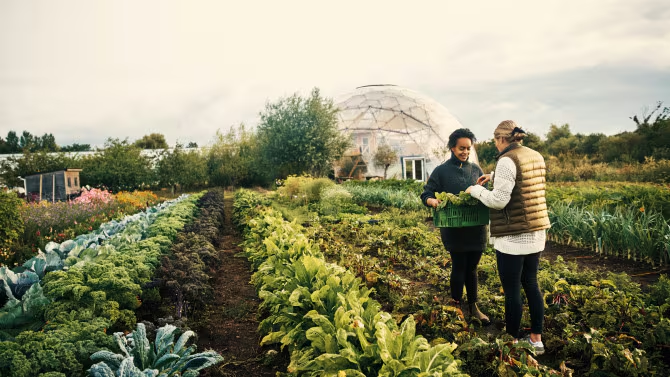The world is facing a critical turning point. Climate change, environmental degradation, and food insecurity are no longer distant concerns—they are urgent realities reshaping how we live, consume, and build businesses. But in the midst of these challenges lies immense opportunity. Climate Tech, AgriTech, and Clean Innovation are rapidly emerging as the next wave of disruption, attracting billions in investment, inspiring founders across the globe, and redefining what sustainable business can look like.
Why Climate Tech Matters
Climate Tech encompasses a broad range of technologies aimed at reducing greenhouse gas emissions, decarbonizing industries, and enabling societies to adapt to climate impacts. The sector has gained explosive traction: PwC reports that climate tech startups raised more than $70 billion globally between 2020 and 2022, a figure that continues to climb as governments and corporations set net-zero targets.
Key innovations include:
- Carbon capture and storage (CCS): Technologies that trap CO₂ before it enters the atmosphere, with players like Climeworks pioneering direct air capture facilities.
- Renewable energy advancements: Solar and wind remain dominant, but energy storage solutions and green hydrogen are emerging as critical enablers of the transition.
- Smart grids and efficiency tools: Digital solutions that optimize energy distribution and reduce waste.
The urgency of the climate crisis means these solutions aren’t optional—they’re necessary. As climate disasters intensify, the demand for scalable climate technologies will only grow, making this one of the most resilient sectors for innovation and investment.
AgriTech: Feeding the Future Sustainably
Agriculture supports nearly 8 billion people, but traditional methods are under immense strain. Rising populations, soil degradation, water scarcity, and unpredictable weather threaten food security on a global scale. AgriTech is stepping up to address these challenges through science-driven and data-enabled solutions:
- Precision farming: Leveraging sensors, drones, and AI to help farmers optimize water, fertilizer, and pesticide use.
- Vertical and urban farming: Growing food in stacked systems within cities, reducing land use and transportation emissions while ensuring fresher produce.
- Genetically engineered and resilient crops: Developing crops that can withstand extreme climates.
- Agri-fintech platforms: Helping smallholder farmers access credit and insurance through mobile technology.
Startups like Plenty, Bowery Farming, and CropIn are reshaping agriculture with models that balance profitability and sustainability. These innovations not only address food scarcity but also reduce agriculture’s massive contribution to global emissions.

Clean Innovation: Beyond Greenwashing
Clean Innovation is not just about being eco-friendly—it’s about embedding sustainability into the DNA of businesses. This goes beyond renewable energy and touches every part of the value chain:
- Circular economy solutions: Startups are transforming waste into valuable resources—think companies turning plastic into construction material or agricultural waste into biofuels.
- Sustainable packaging: The rise of biodegradable and compostable alternatives to single-use plastics.
- Electric and shared mobility: EVs, e-bikes, and urban mobility solutions are reducing dependence on fossil fuels.
- Green supply chains: Companies adopting blockchain and IoT to track emissions and ensure ethical sourcing.
The shift toward clean innovation is being accelerated by consumer demand, regulatory pressures, and investor scrutiny. BlackRock, for instance, has made sustainability central to its investment strategy, signaling that clean innovation is now mainstream rather than niche.
The Entrepreneurial Opportunity
For founders, Climate Tech, AgriTech, and Clean Innovation represent fertile ground for building transformative companies. The global problems are massive, funding is flowing, and governments are offering incentives to support sustainable solutions. But to succeed, startups must:
- Develop scalable, science-backed technologies rather than just green marketing.
- Build partnerships with governments, corporates, and communities to accelerate adoption.
- Balance impact with profitability—long-term success lies in solutions that are both sustainable and commercially viable.
Conclusion
We are entering a decade where the world will be defined by its response to climate change and sustainability challenges. Founders who tackle these issues head-on will not only unlock billion-dollar business opportunities but also shape a legacy that outlasts financial returns. Climate Tech, AgriTech, and Clean Innovation are not niche verticals anymore—they are becoming the backbone of the global economy.
Do you believe these sectors will outpace fintech and healthtech as the dominant wave of startups in the next decade, or will they remain specialized domains within the larger ecosystem of innovation?
